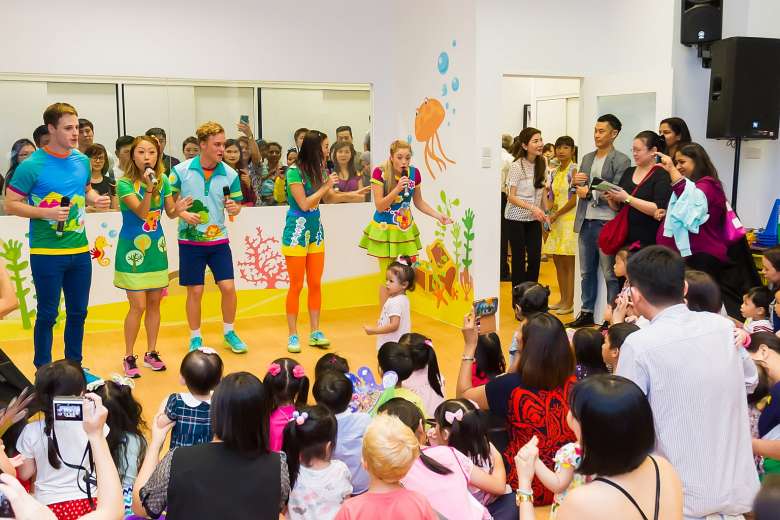Hi-5 Launches First Pre-school In Singapore

Children's television programme Hi-5 introduced its early childhood learning programme at its first House of Learning pre-school in Singapore this month.
Registration for the school's term starting in July is open, and parents may visit its premises in Hoe Chiang Road or schedule a tour of the school from Monday (June 20).
Its pupils, who will be aged between 18 months and six years, will be able to enjoy the Hi-5 experience through play and discovery learning.
The House of Learning will incorporate clips, songs and stories from the popular Australian programme to "encourage delight in learning and create a rich and stimulating learning environment", it said in a press release.
The school will offer programmes for different ages as well. These include pre-nursery, nursery and kindergarten one and two. Kindergarten pupils will be on a more structured programme to allow a smooth transition to Ministry of Education or international primary schools.
Specific skill sets and tasks will be targeted to ensure all Primary One assessment areas are included. Parents will also be engaged, with specific homework tasks they can perform with their children. The medium of communication will be English as the first language and Mandarin, the second language.
The school's education facilitators have developed an inquiry, play-based curriculum that develops higher order thinking skills through self-regulation, it added. Daily areas of learning include music, creativity, mathematics, world knowledge and physical development.
"Using the strengths of the television series and theories of child development, the (House of Learning) will focus on specific Hi-5 movement songs, dances, finger plays, games and rhymes to teach developmentally appropriate topics and subjects for each age group," said early years educator and consultant for the school, Ms Jennifer Rowe.
Added its director of operations, Dr Christoper Pereira: "With the many centres for House of Learning in Singapore to come, we will equip children with the social skills to manage the demands of day-to-day living and interactions to ensure all round educational development catering to current and future social and academic demands."
Post Your Comments for this News
Related Articles
-
Tips for Teaching Coding in Classroom
2017-06-16 12:39:35
-
How to Prepare for Student Orientation Day
2017-05-18 12:53:05
-
World Day for Cultural Diversity for Dialogue and Development.
2017-05-18 10:27:42
-
Big Data for Big Impact #WTISD-17
2017-05-17 09:28:16



